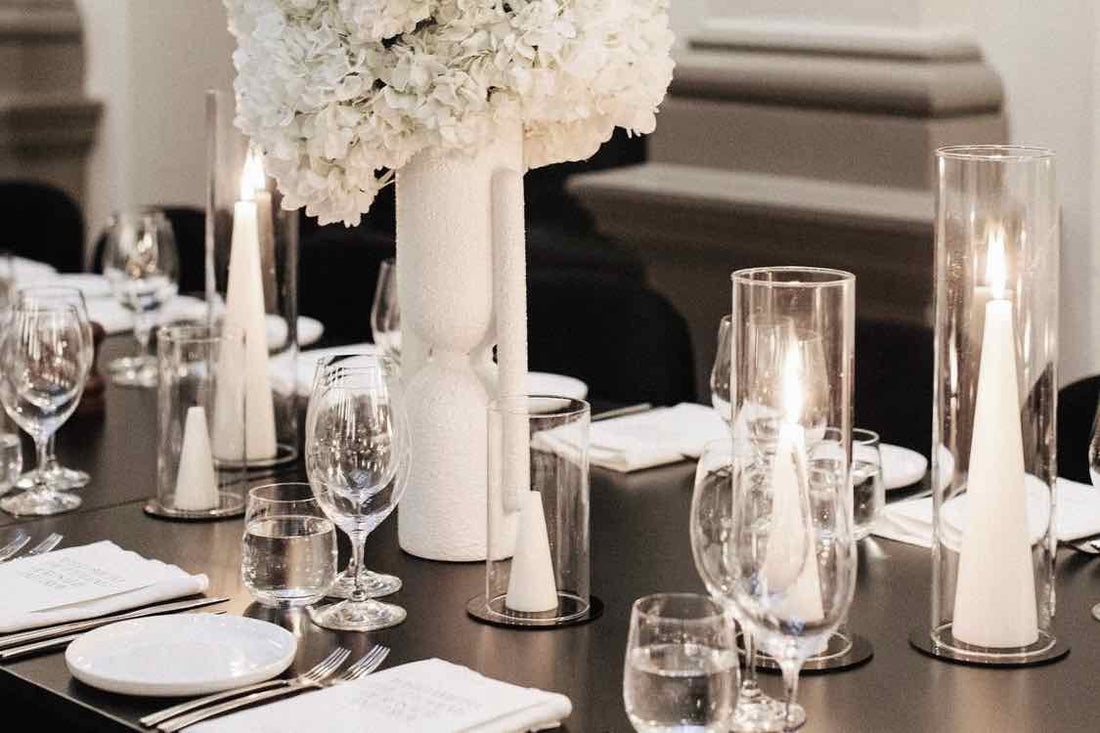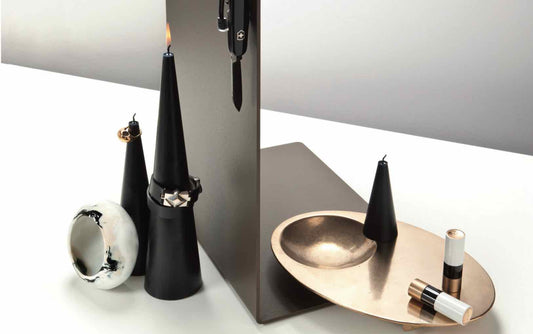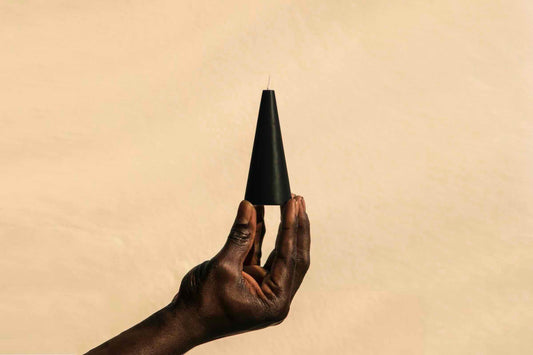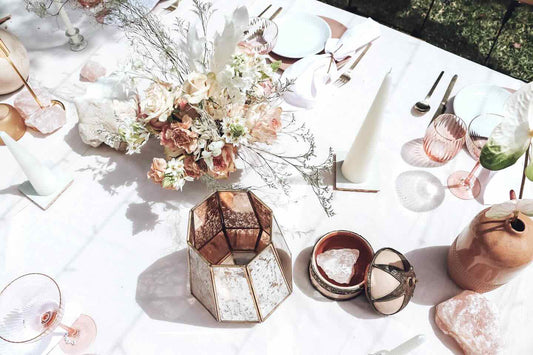
Choosing the right vase for your candle
Share
So you're hosting an event, planning a party, styling a wedding, and you'd love to use natural light. You love the look of candles in glass cylinders, but where do you start? How big should a candle vase be? How small can it be? What's the right height? We get asked these questions quite regularly, so we thought it'd be worth addressing it with a post of its own.
Now then, how do you choose the right vase for your candle? First off, you don't always need to park your candles in a vase, jar or other container. Good quality pillar candles should not drip, and so they can be positioned on tables or trays without being confined to a vase.
Some venues or circumstances still require a container of some sort to be used, and in those cases it helps to know a bit about what makes a good vase for your candle.

1. Diameter
Make sure your container matches the size of your candle. Too large and it might look like the candle is lost in there, though this is a purely aesthetical consideration. Too small and your candle, regardless of the quality, is likely to drip and spill wax in your vase. As a rule of thumb, ideally you should be able to insert two fingers between the candle and the edge of the vase. Our 7cm pillars won't drip in cylinders of 10cm diameter and up. Our 10cm pillars are fine for cylinders or 12cm and up.
2. Height
There isn't really a limitation to the height of a cylinder vase, however it is worth noting that the taller the vase is compared to the candle, in other words the deeper the candle sits inside the vase, the more the air flow to and from the flame gets disturbed, potentially causing smoking. Increasing the diameter of your jar can reduce these issues, or raising the candle by adding a layer of sand for instance.
3. Positioning
These are mainly common sense, but it never hurts to restate. Keep your candles away from draughts, as that can cause dripping, and place them straight (not slanted) and in an area where they are less likely to be knocked over or bumped into.
Obviously prevention is better than cure, or in this case clean, so when possible heed the advice given above on container size and positioning.
How to remove wax from candle jars
Yes, our candles have been designed & developed not to drip, and yes, we do get asked this question from time to time. Mostly by people who don't use our candles ;-) and sometimes because even the most dripless candle takes a knock every now and then, causing some of the wax to spill. The following is based on our experience as well as that of the event stylists we work with.

Even though dripping can be prevented most of the times, see above, it is sometimes out of your control, for instance when the cause is external (i.e. a knock or bump), and in those cases anticipating it can go a long way. If the aesthetics allow, a layer of sand, rice or water at the base of the vase will prevent the wax from sticking to the bottom and make it so much easier to remove any wax that has dripped. Simply break the wax by pushing it down into the sand (or rice, water) and remove it.
So how to remove wax residue from a container, vase, jar or votive? There are a few ways to do this, and which one to use depends on what you have available. To make any of the methods below more effective, remove as much wax as you can from the container beforehand.
- Freezer: if you have the space for it, put the vases in the freezer - wax shrinks when it freezes, which makes the wax pull away from the glass edge; the wax will let loose and come out easier.
- Oven: place the containers upside down on a baking tray lined with foil, and place the tray in the oven until the wax has melted and dripped out of the vase. Remove from the oven and wipe the container with a paper towel (use an oven mitt as the container will be hot!).
- Hot water: pour boiling water into the container, and as the wax melts it will start floating up, ready to be scooped out once it cools down again. This method might take some time depending on the amount of wax residue in the vase.
Finally, an option which is specifically relevant for taper candles in a candelabra or candlesticks, is to prepare the surface with a thin layer of oil (cooking oil, vegetable spray etc.) which will make the wax easier to remove.
There really is no substitute for natural light, so don't let a little wax get in the way of a lot of loveliness. And keep in mind it's not a party until something gets broken (or spilled ;-). Shop our complete range of handmade candles online to find your perfect candle.




